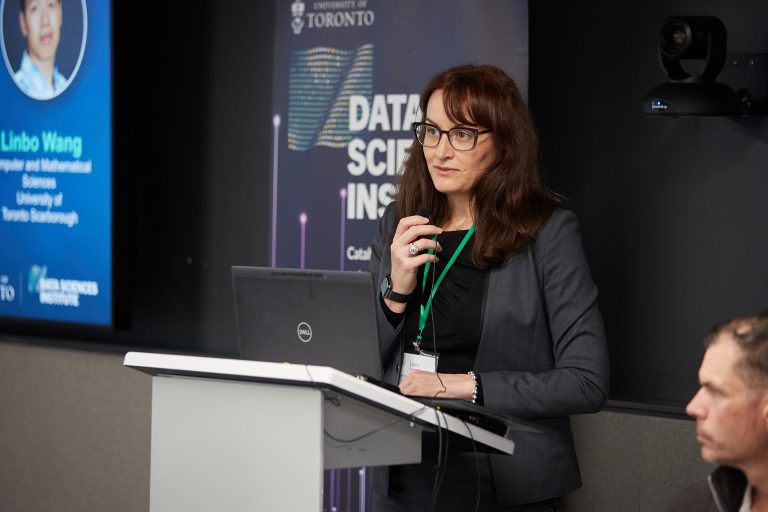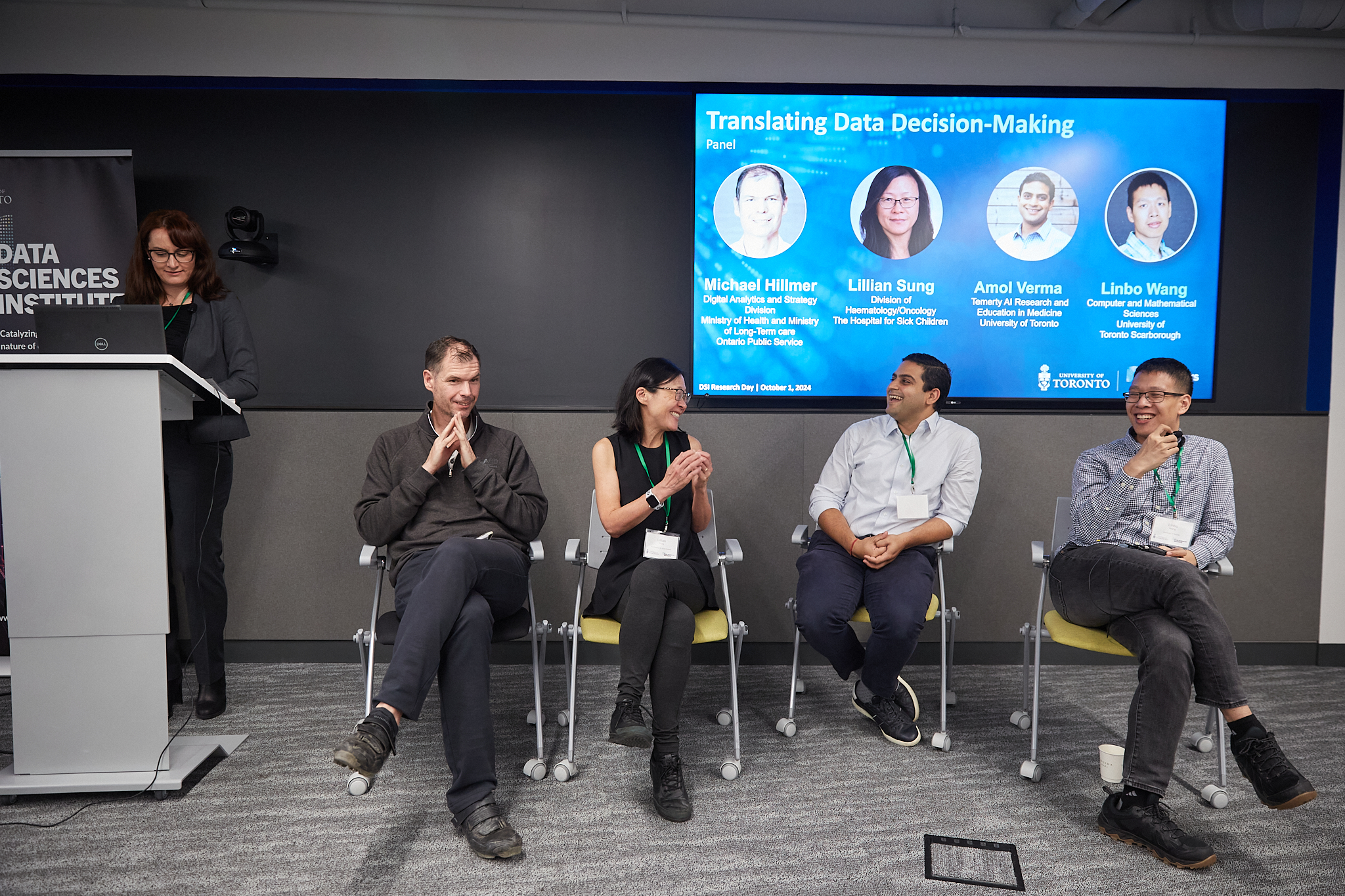In collaboration with the Dalla Lana School of Public Health, the Data Sciences Institute’s (DSI) Policy Lab recently hosted an enlightening panel discussion at Research Day 2024, entitled Translating Data for Decision Making.
With a mandate to build capacity and demand across the public sector for data-science insights, through collaborations with ministries, agencies and other policy-oriented groups, the Policy Lab seeks to promote discussion on data science issues and the skillsets needed to address solutions.

“Identifying the key skills and qualities required for successful deployment in real-world settings is an ongoing and fluid process,” said Laura Rosella, Policy Lab co-lead (Professor, Dalla Lana School of Public Health and Department of Laboratory Medicine & Pathobiology, Temerty Faculty of Medicine, University of Toronto).
“As data science tools continue to evolve rapidly, organizations within the modern health industry are increasingly looking for professionals with wide range of skillsets and qualities to take on important challenges they face daily in a responsible way.”
“At Policy Lab, we’re able to create a unique forum for organizational leaders to both identify and discuss areas that need improvement and as well engage in early stage problem-solving on shared issues.”

Panelists at the Translating Data for Decision Making represented a broad range of sectors including government, hospitals and research institutes, including: Michael Hillmer (Assistant Deputy Minister, Digital Analytics and Strategy Division, Ministry of Health and Ministry of Long-Term Care, Ontario Public Service and Associate Professor, Institute of Health Policy, Management, and Evaluation, University of Toronto); Lillian Sung (Canada Research Chair in Pediatric Oncology Supportive Care, Division of Haematology/Oncology, Chief Clinical Data Scientist, The Hospital for Sick Children); Amol Verma (Clinician-Scientist, St. Michael’s Hospital, and Assistant Professor, Temerty Professor of AI Research and Education in Medicine, University of Toronto), and Linbo Wang (Associate Professor, Department of Computer and Mathematical Sciences, University of Toronto Scarborough).
Panelists discussed the complexities surrounding a number of core issues, including how to best set up a data sciences entity within a health organization and what innovative tools are needed.
“It’s very hard for a data science team to drive the culture on its own,” said Hillmer. “One of the biggest challenges in the policy world is that issues are rarely one to one. There is almost nothing that answers a question with certainty, so humility is an important trait to have.”
“One big revolution I would love to see in the data science world is more simulation tools,” he added. “We need to see reactions in different ways. Some tools that use game theory to drive policy development are very interesting and I think the next big development.”

The ability to understand both broad and specific data insights and solutions within the health sector – essentially an ability to communicate and translate complex data findings – was also identified by panelists as an area of concern.
“Data serves as a starting point for these conversations [in health],” said Verma. “They don’t tell us how to use the data or what to do but they are a valuable beginning point.”
“The ways that we use data science, ensuring data quality and presenting it in a simple way that is easy to understand – all of that work is really at the core of the data science field and really why we need the next generation of data sciences to help us in healthcare.

As panelists honed in on key skills and qualities required for successful data science professionals, a number of looming challenges in the modern health organizations were also outlined.
“One thing is that data literacy [in hospitals] needs to be strengthened,” explained Sung.
“You cannot advocate for change and make things better unless you have a good understanding of your own data availability and data science capacity.”
“For instance, there is not a great sense of what data is missing. The data we don’t have is infinite. One example is the lack of systematic data on patient reported outcomes.”
Click here to learn more about Data Sciences Institute’s Policy Lab initiative.

